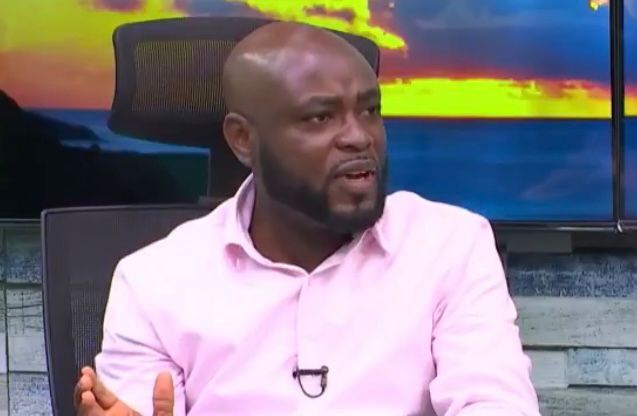The aftermath of the New Patriotic Party’s (NPP) defeat in the 2024 Ghanaian elections has sparked internal discord, with some flagbearer hopefuls for the 2026 internal contest pointing fingers at former Vice President Dr. Mahamudu Bawumia. These accusations center on the claim that Dr. Bawumia failed to secure sufficient votes from his Mamprusi ethnic and Muslim religious background, contributing to the party’s overall loss. This narrative has been fueled by figures like Bryan Acheampong, the Member of Parliament for Abetifi, who specifically linked the NPP’s poor performance in conflict-ridden areas like Bawku to Dr. Bawumia’s Mamprusi heritage. However, this emerging tribal narrative has been challenged by prominent voices, including Larry Dogbe, the Managing Editor of the Herald newspaper, who argues that the election results represent a broader rejection of the Akufo-Addo administration’s leadership rather than a reflection of Dr. Bawumia’s individual appeal.
Mr. Dogbe contends that the 2024 election served as a referendum on President Akufo-Addo’s governance, evidenced by the NPP’s significant losses even within its traditional strongholds. He emphasizes that the widespread discontent transcended ethnic or religious lines, impacting various demographics and geographical areas. The decline in the NPP’s performance was evident across the country, including coastal regions and even within the capital city of Accra, traditionally considered an NPP bastion. This widespread rejection, according to Mr. Dogbe, highlights the depth of the electorate’s dissatisfaction with the ruling party’s performance and leadership.
The attempt to scapegoat Dr. Bawumia, Mr. Dogbe argues, is a misdirection that prevents the NPP from addressing the fundamental issues that led to its defeat. He maintains that the party must engage in a thorough introspection, acknowledging the failures of the Akufo-Addo administration that eroded public trust and ultimately cost them the presidency. These failures, he implies, extend beyond any single individual’s influence and encompass broader policy decisions and governance practices.
Focusing on Dr. Bawumia’s ethnicity and religion, Mr. Dogbe suggests, is a diversionary tactic that avoids confronting the deeper malaise within the NPP. The party’s loss was not solely due to the perceived shortcomings of a single candidate but rather a collective failure of leadership and governance. This narrative, based on tribal identity, risks further fracturing the party and hindering its ability to rebuild and regain public confidence. A more productive approach, he argues, would involve a comprehensive analysis of the Akufo-Addo administration’s policies and their impact on the Ghanaian population.
The accusations against Dr. Bawumia also raise concerns about the potential for divisive identity politics to overshadow substantive discussions about policy and governance. By attributing the NPP’s loss to Dr. Bawumia’s background, these critics are arguably promoting a simplistic and potentially harmful narrative that overlooks the complexity of voter motivations and the broader political landscape. This focus on identity could further polarize the electorate and hinder efforts to build a more inclusive and unified political environment. Instead, the focus should remain on the performance of the government and the policies that impacted the lives of ordinary Ghanaians.
Ultimately, Mr. Dogbe’s argument calls for a more nuanced understanding of the 2024 election results. Rather than resorting to simplistic explanations based on identity, he urges the NPP to engage in a critical self-assessment, acknowledging the systemic issues that contributed to its defeat. This involves confronting the shortcomings of the Akufo-Addo administration and developing a more comprehensive strategy for regaining public trust. Only through such honest introspection, he suggests, can the NPP hope to rebuild and present a viable alternative in future elections. By focusing on the broader issues of governance and policy rather than resorting to divisive identity politics, the NPP can begin the process of regaining the trust of the Ghanaian electorate.














